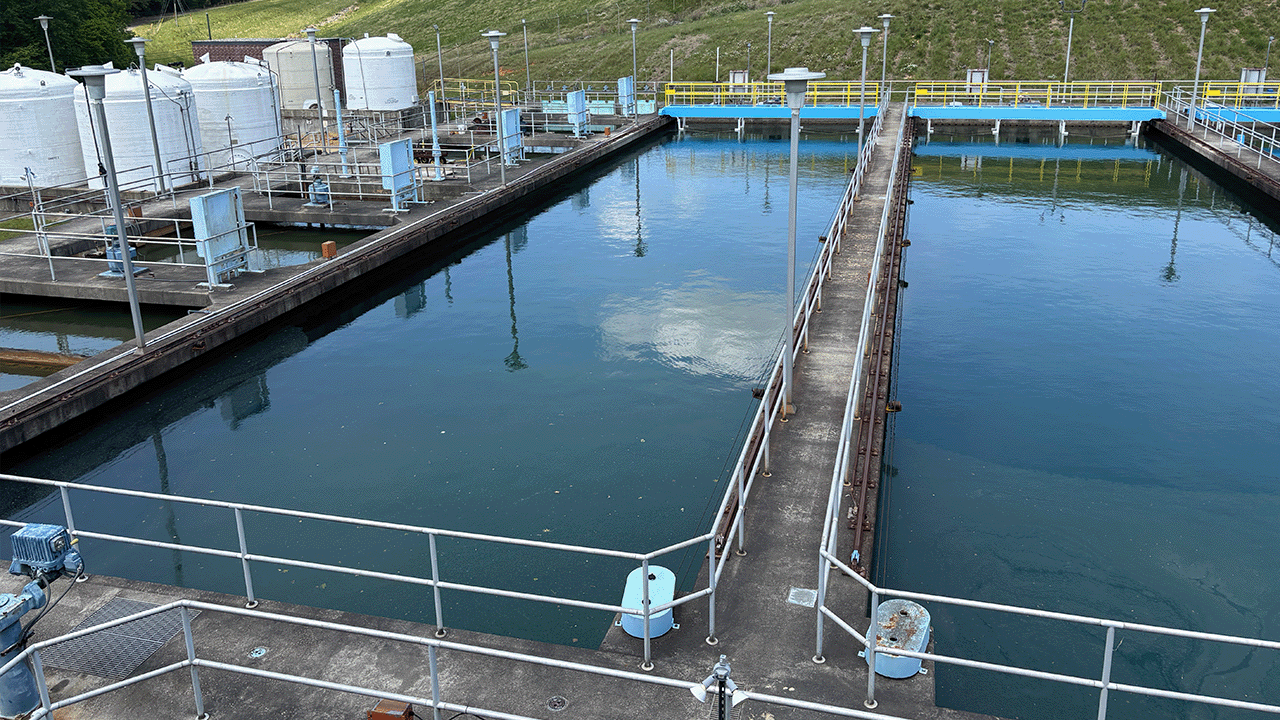This project was completed by SEH of North Carolina PLLC (SEHNC)
Challenge
The City of Eden in North Carolina has a long history of delivering safe, reliable drinking water to more than 15,000 residents and businesses through the Robert A. Harris Water Treatment Plant (WTP). Originally constructed in 1950 and upgraded in 1992, the facility has soundly served the community for decades. Now, with much of the infrastructure showing its age, the City is taking proactive steps to ensure the plant can continue to support residents while planning for the significant population and industrial growth anticipated from the upcoming Southern Virginia Mega Site development.
Solution
To address these challenges, the plant needed to be fully evaluated to ensure long-term resiliency and develop a clear path for maintaining water quality and service reliability for the next 30 years.
SEH of North Carolina (SEHNC) partnered with the City to conduct the in-depth assessment of the WTP’s structural, mechanical, and electrical systems, along with its operational processes. This included a review of historical data and Department of Environmental Quality (DEQ) reports, on-site facility inspections, and input from operations staff. The resulting report provides the City with a prioritized list of recommended improvements, associated cost estimates, and life-cycle analyses to support informed capital planning.
Targeted Infrastructure Improvements
The assessment highlighted several areas where aging equipment poses a risk to reliability, including the main power switchboard, corroded panelboards, instrumentation beyond its usable life, and deteriorated chemical storage tanks. The team recommended targeted upgrades, such as minor clean-up in the panels to remove old or abandoned components, that will modernize these systems while minimizing downtime. Recommendations also addressed key safety concerns, such as corrosion due to chlorine exposure and limited raw water emergency pumping capabilities.
Improving System Resiliency
At the current reduced flow, the facility has enough redundancy to handle equipment downtime. However, as system flow increases, aging equipment could experience more frequent downtime due to maintenance, potentially leading to service interruptions. Enhancements to ventilation, clearwell coatings, and backup systems were also recommended to extend the life of the facility and reduce the likelihood of these costly disruptions.

Preparing for Growth
Although current water demands are significantly below the plant’s permitted capacity of 20.6 million gallons per day, projections show that demand could approach the permitted flow in the near future. The team helped the City plan for this growth by identifying equipment and systems that need to be upgraded or replaced. These recommendations will ensure the plant can reliably meet increased demand without sacrificing service quality or placing additional strain on aging infrastructure.
Long-Term Value for the Community
By investing in this assessment now, the City of Eden is taking clear, strategic steps to protect its most critical water infrastructure. The improvements identified will not only increase operational reliability but also ensure that safe, clean water remains readily available to the entire community as it grows. This proactive planning effort reflects the City’s commitment to public health, economic development, and long-term service to its residents.
Project
Robert A. Harris Water Treatment Plant Needs Assessment
Location
Eden, North Carolina
Client
City of Eden
Features
- Comprehensive system and operations assessment
- Identification of upgrades to prepare for future water demand growth
- Proposed phased improvements
- Enhancements to increase resiliency and reduce service interruptions
- Guidance to support long-term operational reliability and community service
Services
- Water engineering

.png?width=113&name=SEH_Logo_RGB%20(1).png)
